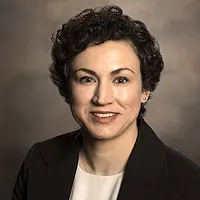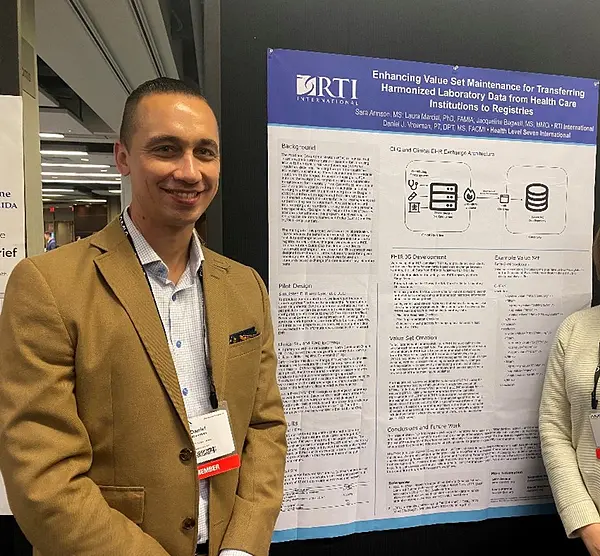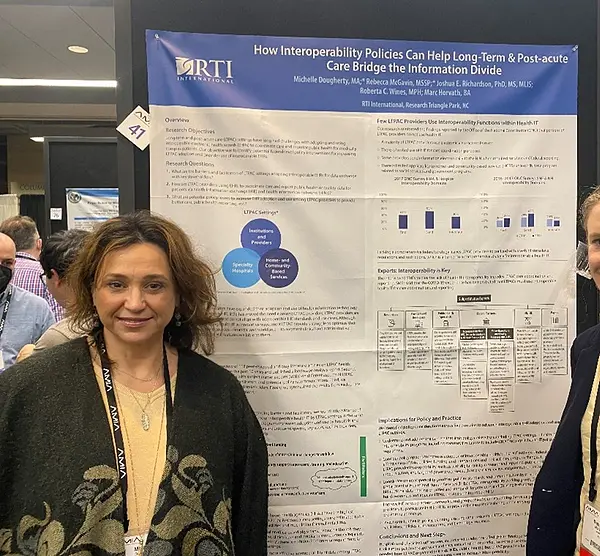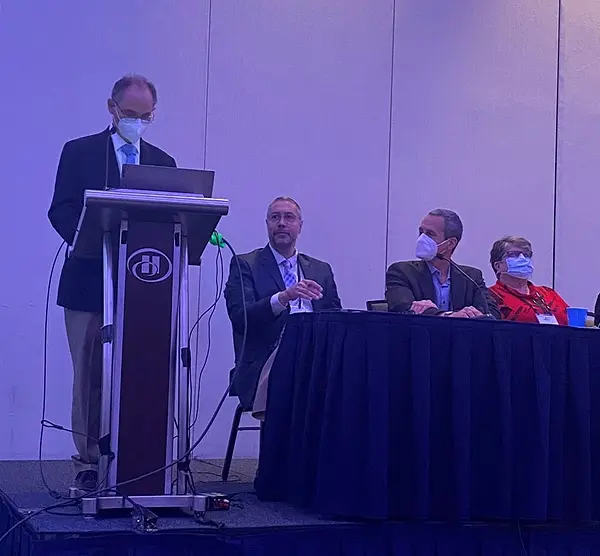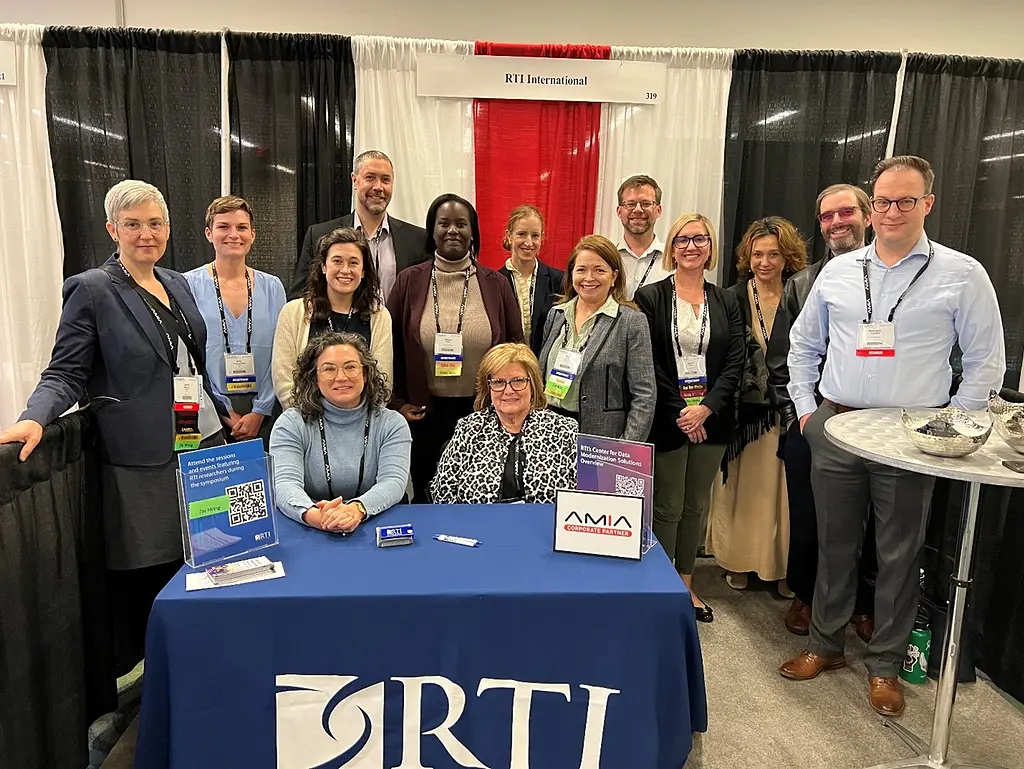
Laura Marcial, Allie Gartland-Gray, Mary Hannah Currin, Joshua Richardson, Teresa Abok, Rebecca McGavin, Maria I. Davila, Ben Tyndall, Alexa Ortiz, Michelle Dougherty, Eric Puster, Brandon Aylward, Rebecca Boyles, and Linda Dimitropoulos represent RTI International at the 2022 AMIA Symposium in Washington, D.C.
About the American Medical Informatics Association 2022 Annual Symposium
The American Medical Informatics Association (AMIA) 2022 Annual Symposium was held from November 5 - 9 in Washington, D.C. The theme of this year’s gathering of informatics professionals was “Informatics: Building the Evidence Base” and the over-arching message throughout was the need to use data and information effectively to transform health care. Here are a few key takeaways RTI International staff gathered from the event.
Making Data Useful for Health Care Decision-Making
The opening session and keynote panel highlighted a need for data in health care decision making to support improved patient outcomes. However, the needs for data in health care and how we leverage this data are different than other industries. For example, health care data requires standardization, harmonization, interoperability, and the appropriate security measures to unlock its potential. Another challenge is the inconsistent quality of health care data. The presentation “Not All Data Is Created Equal” focused on issues around errors, inconsistences, and incompleteness, along with the risk of perpetuating errors when information is copied across multiple patient visits.
To discuss how some of these challenges might be addressed, a corporate roundtable was convened during the symposium to support discussion around semantic interoperability and how data can be interpreted across technology systems to foster decision making at the point of care. AMIA also gave RTI the opportunity to showcase our work being done through the Center for Data Modernization Solutions, in collaboration with other RTI experts, to enable health information technology to improve the movement and use of data throughout the data lifecycle.
Supporting the Public Health Infrastructure
With COVID-19 being an ever-present concern, especially during in-person gatherings, the need for public health and an infrastructure to support public health initiatives was another common takeaway among AMIA sessions. The Office of the National Coordinator presented on the Strengthening the Technical Advancement and Readiness of Public Health via Health Information Exchange Program (The STAR HIE Program), a program supporting the use health information exchanges as a tool in the response to public health emergencies. Another panel addressed the potential of Fast Healthcare Interoperability Resources to reduce the burden associated with public health reporting using open-source standards-based software.
Promoting Health Equity
A consistent focus of the AMIA Symposium was the need to establish equity in how data is collected, analyzed, and interpreted to reduce disparities in health and health care. The Agency for Healthcare Research and Quality presented on their ongoing work to evaluate the impact of health care algorithms on racial and ethnic disparities. A panel on the implications of data as a public good stressed a need for more diverse datasets for machine learning as a path toward reducing harm and improving diagnostic processes. The closing keynote was a powerful presentation by Dr. Bonnielin Swenor on advancing health equity for those with disabilities. Dr. Swenor discussed a need for gathering data on health care inequities for people with disabilities along with a need for innovative methods of disability inclusion in research and daily life.
RTI at AMIA and Next Steps for Health Care Transformation
It was an exciting return to an in-person AMIA Symposium and a great opportunity to learn about the latest innovations and most pressing issues within the informatics community. During the symposium, Dr. Joshua Richardson joined a panel discussing the role of informatics in industry. Michelle Dougherty, Rebecca McGavin, and Sara Armson presented their research during the poster presentation sessions. The RTI team also enjoyed connecting with our informatics colleagues at our booth.
Our team plans to take what we learned from this symposium to support our ongoing work in health care transformation. We are looking forward to the 2023 AMIA Symposium as a future opportunity to share the strides made by our RTI colleagues and continue learning from our partners.

